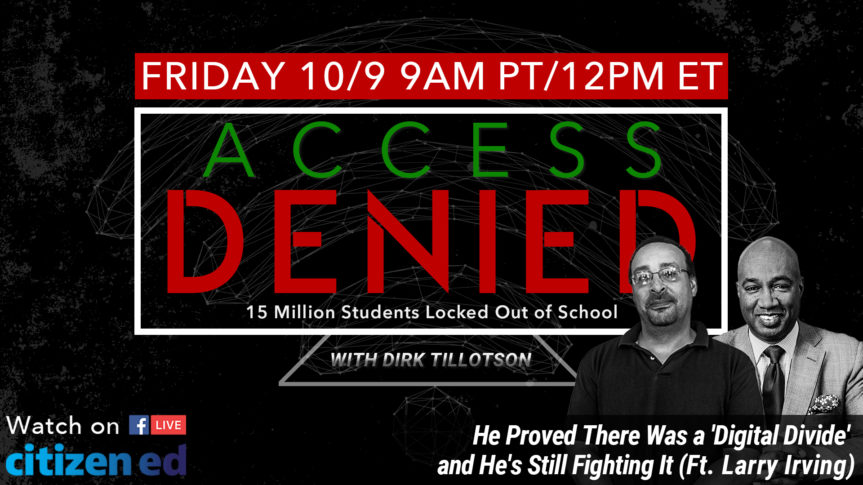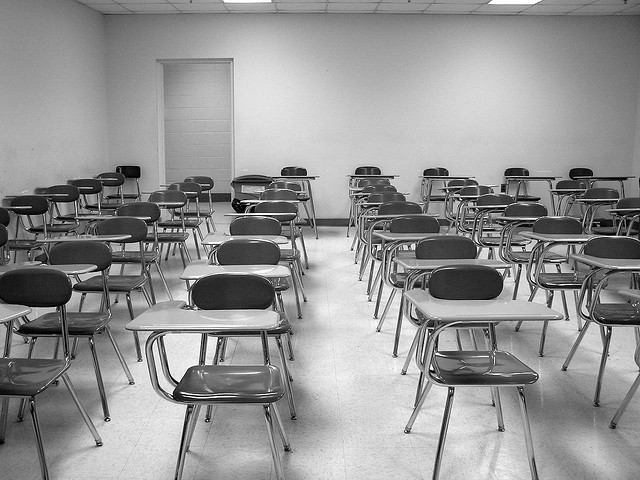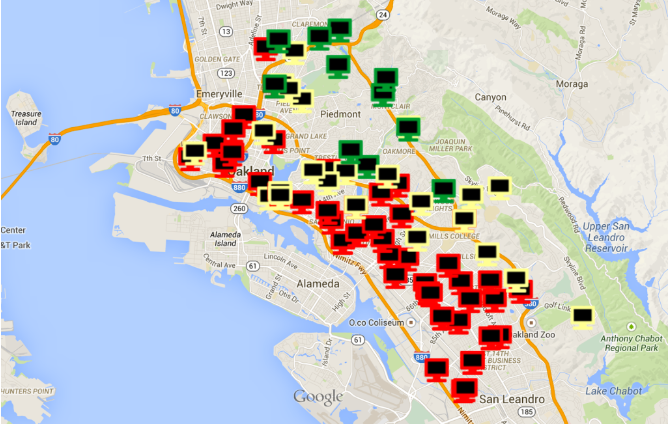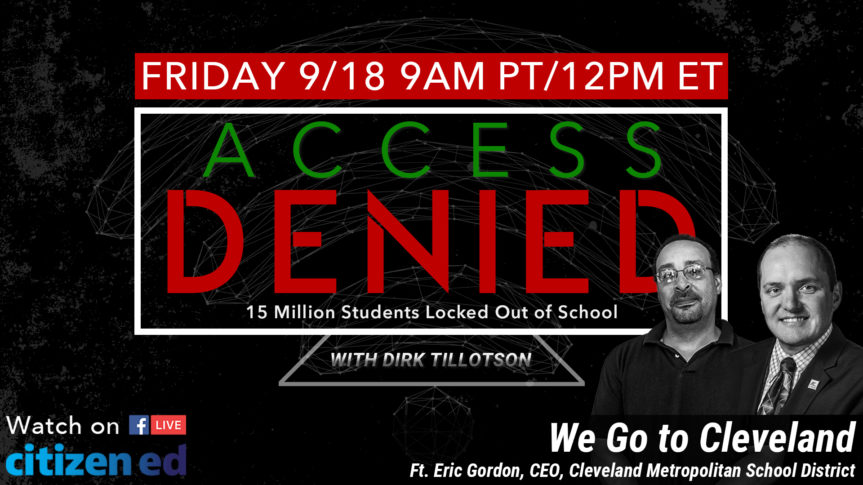Before Larry Irving’s research there was no widely accepted “digital divide” and no effort to systematically address it. And beyond seeing the problems he led efforts to remediate it, serving during both the Clinton and Obama administrations, and earning a spot in the Internet Hall of Fame, as it’s first Black member. Join us tomorrow…
Internet for All
Internet Is Now a Right
To fully participate in school, now and going forward, every child needs and deserves high speed internet access. We are dedicated to that fight at the local, state and national level.
The coronavirus pandemic didn’t create the digital divide, but it has exposed once and for all the deep and unacceptable inequities that exist in our education system. Our goal is to emerge from this pandemic with a more equitable and durable internet infrastructure that guarantees that every child that needs access, can get it, free with no strings attached.
High-speed internet is no longer a luxury or a privilege. It is an essential utility — like electricity and telephone — and should be treated as such. Our political and business leaders should be held accountable for making this possible and ensuring that every child has access to the educational opportunities our country promises.
- Former education secretary Arne Duncan writes in the Washington Post that “the FCC can give Internet access to all Americans during this pandemic.”
- Oakland’s Dirk Tillotson wrote in Blavity that The FCC Needs To Act Now To Ensure All Low-Income Students Have Home Internet.
- In Philadelphia, educator Zachary Wright says internet providers need to step up and “Let Children Learn.”
- In Kentucky, teacher Garris Landon Stroud urges the FCC to fight for all poor families to be connected to the internet.
It’s National Digital Inclusion Week, Do you Know Where your Students Are?
During distance learning, if you can’t get online, you can’t get to school. Last we knew, roughly half of Oakland’s students were unconnected or underconnected, with our most historically underserved students being the most disconnected. And there were 15-17 million students nationwide in the same drifting boat, wafting further and further from proficiency. Even worse,…
The Federal Government Promised Native American Students Computers and Internet. Many Are Still Waiting.
by Alden Woods, Arizona Republic. This story was originally published by ProPublica Native American students in BIE operated schools were forced to start the school year without adequate technology, sometimes sharing a single computer among siblings, because the agency disbursed funding late and failed to purchase equipment in time. SERIES:LESSONS LOST How Federal Schools Are Failing…
Getting Distance Learning Policy Right; How OUSD Can Bridge the Digital Divide and More
Tonight OUSD will vote on a plan to end the digital divide in Oakland. It’s a good first step and one we need. Despite a rocky road to the vote, it’s a good policy, that reflects the values of OUSD. Now we have to put it into practice. Oakland’s families need Internet for All—they need…
Cleveland’s Non Profit Answer to the Digital Divide: Access Denied Ep. 11: (ft. Superintendent Eric Gordon)
Cleveland is providing #internetforall without relying on private broadband providers, find out how here and please help us end the #digitaldivide





